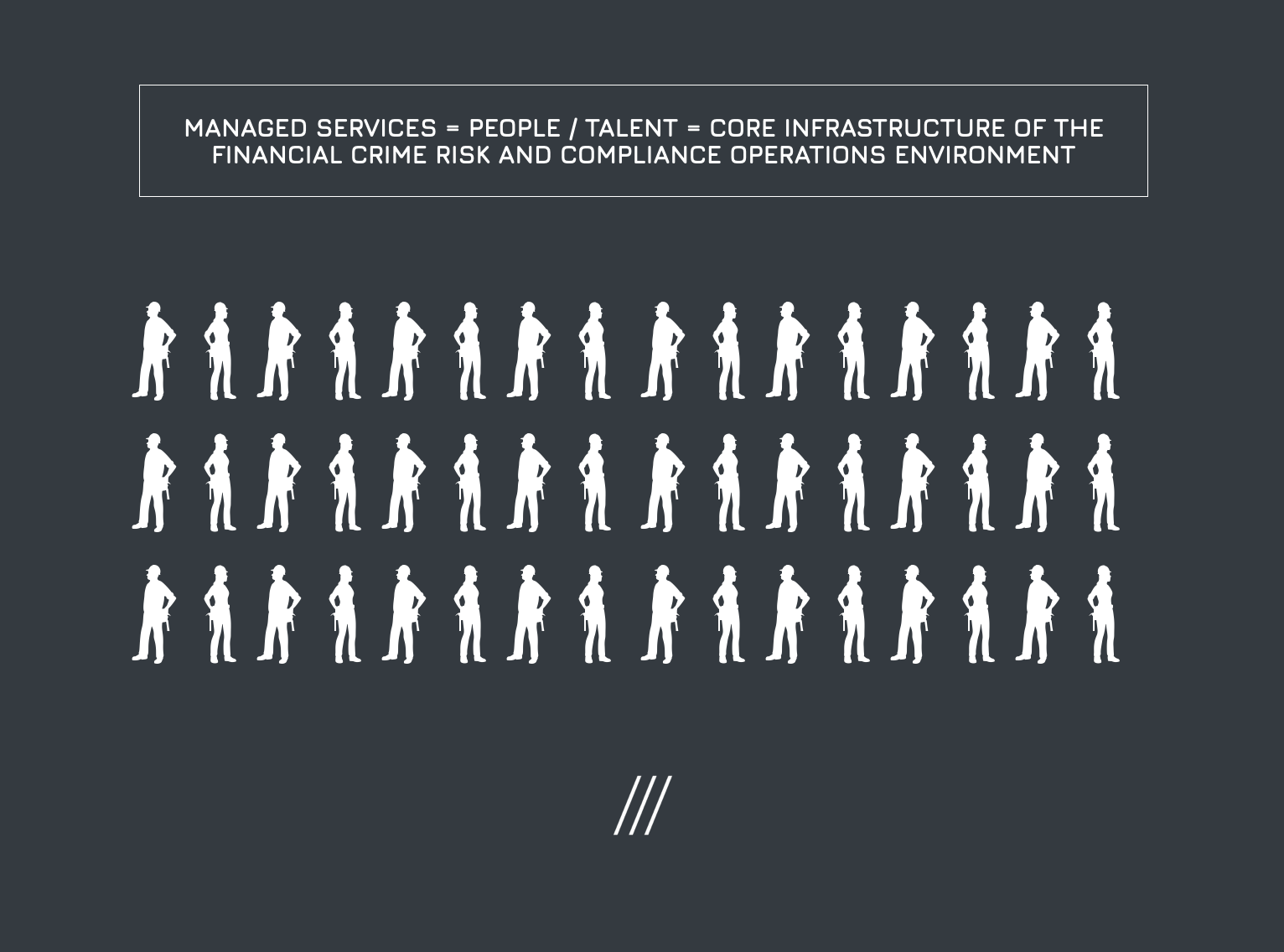FinCrime Modernization: Big Opportunity for Managed Services

Scottsdale, Arizona, July 14, 2022 – i3strategies®️, a boutique consultancy with unique expertise in the Financial Crime Risk and Compliance space, is pleased to present our latest blog post.
Financial Crime Risk and Compliance needs more workers. This may sound strange since we hear new technology will automate much of the due diligence, alert analysis, and investigation work and reduce staff. It turns out this is not the case, and the OCC is emphasizing its growing concern about staff shortages and the negative impact on compliance. The OCC says it's worried about how financial institutions will find, train, and retain skilled financial crime compliance workers.
In its 2022 Semi-Annual Risk Perspective report published in June, the OCC tells the industry what Financial Crime Risk and Compliance leaders already know - finding and retaining skilled staff is a big problem and understaffing increases compliance risk. According to the Risk Perspective, the OCC notes, "Bank compliance functions are experiencing challenges retaining and replacing staff." And that "A lack of access to subject matter expertise may result in increased compliance and operational risk."
What Is Causing Worker Shortages?
Fintechs and digital currency exchanges are vying for experienced compliance professionals, leading to a battle for talent. Many workers also want to keep working remotely to avoid commuting costs and enjoy the flexibility of working from anywhere. The OCC fears employers requiring workers to return to the office may face resignations, worsening staffing shortages. Add to the ongoing worker shortage, piles of new sanctions as well as new Anti-Money Laundering Act of 2020 regulations, and workloads are multiplying. More work and fewer workers put institutions in a tough spot.

Opportunity for Managed Services
In such an environment, managed services firms are well-positioned to continue growing. Over the past five years, the growth of outsourcing Financial Crime Risk and Compliance operations has been remarkable.
For institutions, including fintechs and digital currency exchanges, there are several benefits to outsourcing customer due diligence, transaction monitoring, and case investigation operations. Outsourcing eliminates the headaches of finding, training, retaining, and replacing workers.
Outsourcing also enables institutions to consider reducing or eliminating the need to purchase and maintain new software and data systems. Depending on the outsourcer capabilities, an institution may not need to invest in new case management applications, research tools, databases, or automation software like Robotic Process Automation (RPA). In other instances, institutions may decide these systems are needed in-house, and the outsourcer is simply an extension of the workforce that uses the bank's systems via a network connection. Outsourcing provides different options, and executives can choose the best fit for their organization.
If the Financial Crime Risk and Compliance outsourcing market is growing because of the challenges of finding, hiring, and retaining workers, why would this same challenge not exist for outsourcers? Where will they find workers? The short answer is that they, too, will face similar challenges, and running their business is no easy feat.
However, managed service firms have several advantages. Begin with this critical difference: These firms only succeed if they master the ability to find, train, and retain skilled workers. It is the foundation of their business. For example, a managed services firm that provides transaction monitoring alert analysis must build recruiting, training, management, processes, and technology around this focus. They can better "industrialize" recruiting, training, and retaining staff through focus, size, and scale. Managed services firms have incentives to fine-tune analysis, investigation, and reporting processes, reduce inefficiency, and use technology to automate many manual tasks. Many firms work in lower-cost parts of the US, Eastern Europe, Latin America, and Asia. These approaches reduce hiring and training costs and speed up work.
Despite the challenges of finding staff and the benefits of outsourcing, many Financial Crime Risk and Compliance leaders remain reluctant to use managed services. Concern about work product quality, costs, the impact on existing employees, information security, and uncertainty about the day-to-day flow of work is enough to prevent institutions from engaging managed services firms. These are reasonable concerns, and it's up to the managed services firms to demonstrate why they are the right solution for the worker shortage problem facing Financial Crime Risk and Compliance.
Managed services may not be the answer for every institution, fintech, or digital exchange. Still, it's clear that the Financial Crime Risk and Compliance service is growing and will continue to grow for the foreseeable future as the need for trained analysts, investigators, and researchers seems endless.

